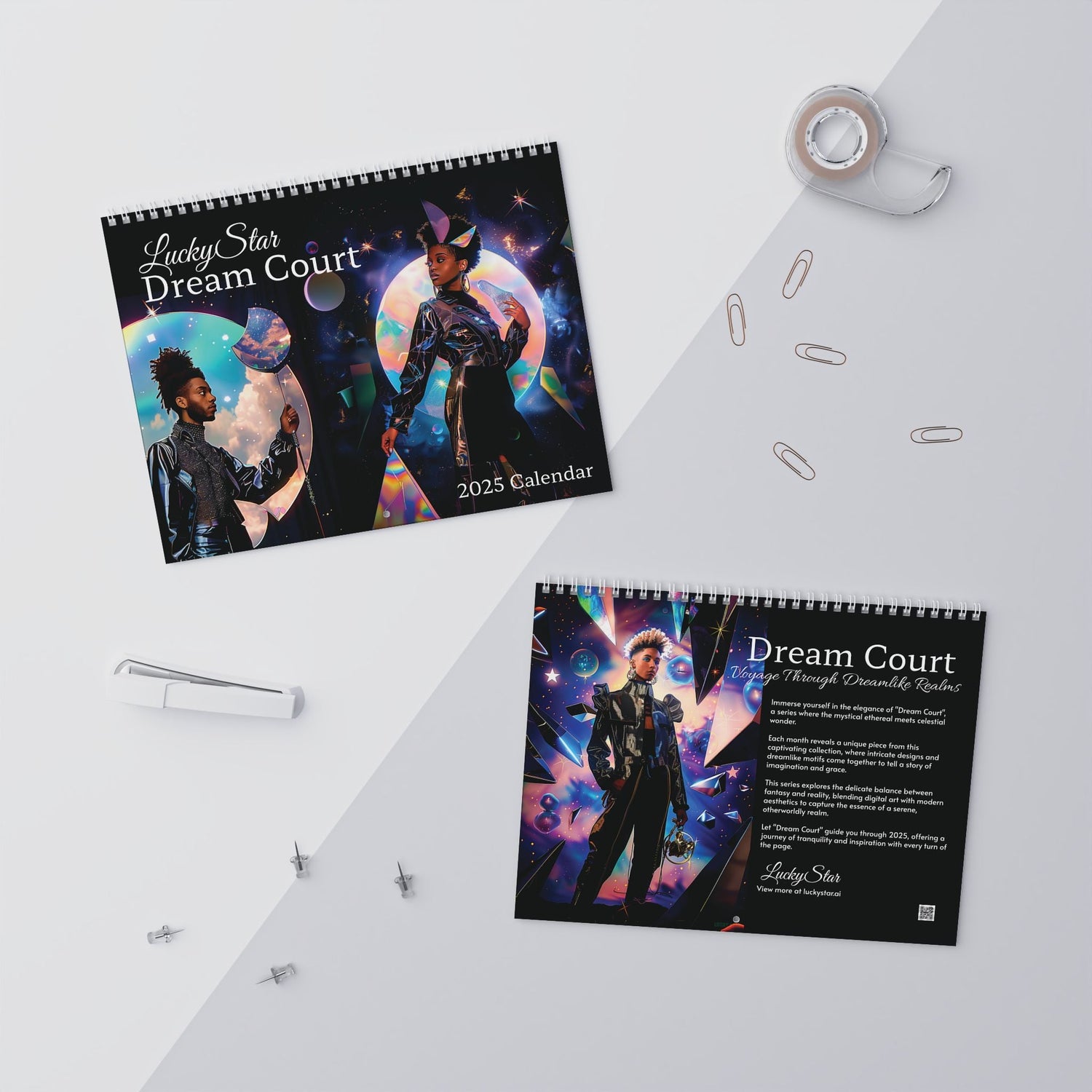
Case Study: Fair Funding Practices in Web3—Lessons from Flyana Boss
How Flyana Boss Bridged Hip-Hop and NFTs
[May 28, 2025] — Flyana Boss, the vibrant Los Angeles–based hip-hop duo of Bobbi LaNea Taylor and Folayan Omi Kunerede, quickly garnered attention with their energetic performances and creative vision. Alumnae of the Musicians Institute, their popularity surged after viral TikTok videos, securing a joint-venture deal with Atlantic Records in 2021 (Atlantic Records, 2025, Wikipedia, n.d.). By 2024, their dynamic presence had earned them the opening act spot on Janelle Monáe’s The Age of Pleasure North American tour, further showcasing their artistic range (Exclaim!, 2023).
In mid-2023, Flyana Boss announced an innovative NFT project on Sound.xyz, intending to deepen fan engagement through digital art and music. Despite their enthusiasm, the duo withdrew the project within hours, citing intense criticism over environmental concerns and confusion around NFTs (Flyana Boss, 2023). Although public statements referenced fan backlash, the abruptness of this decision invites deeper consideration of factors beyond immediate reactions.
What this means:
Flyana Boss’s NFT pull-back is not just about fan reactions—it reveals how even high-profile Black women artists struggle to navigate emerging markets without robust support systems.
Hold the Bag, Steer the Chain: Funding Power in Action
Industry environments often discourage projects by Black women through unspoken judgments rather than overt obstructions. Labels and managers may shy away from novel formats out of fear of financial risk, and public commentary can swiftly turn critical when norms are challenged (Blockworks, 2022). Flyana Boss’s candid admission of feeling “confused by NFTs” (Flyana Boss, 2023) underscores the need for reliable guidance that many founders cannot easily access.
The visibility of Black women in emerging sectors like Web3 remains uneven. Black women make up approximately 7.3% of the U.S. population (Pew Research Center, 2025). Black Americans own cryptocurrency at notably higher rates (18%) than White Americans (13%) (Federal Reserve Bank of Kansas City, 2022), yet leadership roles continue to elude many. In fact, a nationally representative survey of U.S. adults shows 25% of Black Americans own crypto versus 15% of White Americans (Morning Consult, 2022). These percentages translate to roughly 8.7 million Black adopters and 26.4 million White adopters, reflecting the larger White population base.

What this means:
Despite enthusiastic participation, Black women’s underrepresentation in leadership and funding signals a critical disconnect: enthusiasm alone does not open doors unless decision-makers change the rules.
Funding and Representation
In 2022, Black women founders captured just 0.34% of U.S. venture capital funding despite representing 13% of U.S. founders (NVCA & PitchBook, 2023) and while Black Americans comprised 14.5% of the total U.S. population (Pew Research Center, 2022).
Self-Funding Pressures
More than 60% of these founders self-fund their ventures, facing rejection rates nearly three times higher than those of other groups (Harvard Business Review, 2021).
Industry Composition and Seed Shares
White founders claimed 48.7% of seed investments in 2023 and East Asian founders 25.4% (Carta, 2024). Within venture firms, 69% of investment roles are held by white professionals, 22% by Asian/Pacific Islander professionals, and 5% by Black professionals, while white males manage 93% of assets compared to 5% by AAPI individuals (AAAIM, 2023). Crunchbase further reports that 77.1% of VC-backed founders are white, 17.7% are Asian, and only 1% are Black (Crunchbase News, 2019).
These numbers make clear that enthusiasm and track record alone do not guarantee fair treatment. When commitment and capability go unrecognized, it reflects choices made by those controlling capital. That gap between engagement and backing calls for close attention to how investment decisions are made—and by whom.

What this means:
When funding flows disproportionately to established groups, founders outside those networks—even proven talent like Flyana Boss—face an uphill battle to secure the resources that turn ideas into impact.
Diaspora VC Funding—the Invisible Protocol
Yet it is these hidden hurdles—grant criteria, network gatekeeping and shifting program priorities—that make Flyana Boss’s on-chain ambitions persistently rare by design. A recent pivot in some visibility and grant programs toward pan-African initiatives saw African tech VC funding soar from US $159 million in 2017 to US $5.2 billion in 2021 (Partech, 2022), even as Black women founders in the U.S. captured just 0.34 percent of domestic VC dollars in 2022 (National Venture Capital Association & PitchBook, 2023). While framed as “building bridges across the diaspora,” this bifurcation of capital often channels resources down separate paths—forcing ventures that might otherwise partner to compete for the same seed and follow-on funding, bolstering a performative narrative of Web3 stagnation.
Global venture funding reached US $643 billion in 2021 and U.S. VC US $315 billion in 2022 (Crunchbase News, 2024; National Venture Capital Association & PitchBook, 2023), a pool ample enough to underwrite multiple groups simultaneously. Yet when the protocol that allocates funds remains invisible—favoring certain geographies, gendered networks or reputational “insiders”—innovation suffers. Projects like Flyana Boss’s NFT drop stall not from lack of vision but from built-in design choices. True progress demands that those who control the capital open doors rather than simply shift scenery—otherwise cries of “stagnation” in Web3 ring hollow against the data.
What this means:
Funding initiatives segmented along regional lines can result in pan-African and U.S.-based programs operating independently, limiting collaborative opportunities for founders who share similar diasporic experiences.
Hidden Figures: Flyana Boss’s Creative Collaborators
Behind Flyana Boss’s public persona lies a team whose efforts seldom appear in headlines. TikTok creator Bella Does Editing highlights videographer Evan Blum’s skilled camera work (Bella Does Editing, 2023), and credits for “You Wish” list Marky Style, Stephen Ellrod, and Puda Beats (Genius, 2023; Love, 2023). Yet a survey of top music outlets shows no mention these collaborators—attention often centers on front-facing artists.
What this means:
The talent behind Flyana Boss’s creative output—from cinematographers to producers—stay unseen. True equity means crediting every contributor, not just front-stage stars.
Conclusion: Turning Visibility into Opportunity
Lasting change comes from tangible action, not applause. Platforms and investors should routinely share demographic and funding data, set clear targets, and report progress. Rather than symbolic nods, supporters of shared gains can counter skepticism by pointing to verified figures on funding distribution and verifiable leadership presence.
Flyana Boss’s journey offers a vital lesson: visibility must translate into opportunity. The real measure of meaningful and substantial participation is when every capable founder—regardless of background—receives the same chance to shape the future.
Sources & References
Atlantic Records. (2025). Flyana Boss [Artist page]. Retrieved from https://www.atlanticrecords.com/artists/flyana-boss
Association of Asian American Investment Managers. (2023). AAPI-owned funds significantly underrepresented in U.S. AUM despite outperformance [White paper]. Retrieved from https://aaaim.org/wp-content/uploads/2023/05/AAAIM_Asset_Mgmt_WhitePaper.pdf
Bella Does Editing. (2023). Behind the scenes with Flyana Boss. TikTok. Retrieved from https://www.tiktok.com/@bella_does_editing/video/7252117987489008922
Blockworks. (2022, March 9). It’s Women’s History Month. Is Crypto Doing Enough for Women of Color? Retrieved from https://blockworks.co/news/its-international-womens-month-is-crypto-doing-enough-for-women-of-color
Carta. (2024). Annual Equity Report 2024. Retrieved from https://carta.com/data/equity-report-2024/
Crunchbase News. (2019, January 7). Q4 2018 closes out a record year for the global VC market. Retrieved from https://news.crunchbase.com/data/q4-2018-closes-out-a-record-year-for-the-global-vc-market/
Crunchbase News. (2024, January 4). Global startup funding in 2023 clocks in at lowest level in 5 years. Retrieved from https://news.crunchbase.com/venture/global-funding-data-analysis-ai-eoy-2023/
Exclaim! (2023, September 21). Janelle Monáe ushers Toronto into her Age of Pleasure — Flyana Boss openers. Retrieved from https://exclaim.ca/music/article/janelle_monae_toronto_concert_review_massey_hall_september_21
Federal Reserve Bank of Kansas City. (2022, Fall). Inside the rise of Black consumer cryptocurrency ownership. TEN Magazine. Retrieved from https://www.kansascityfed.org/ten/2022-fall-ten-magazine/inside-the-rise-of-black-consumer-cryptocurrency-ownership/
Flyana Boss [@flyanaboss]. (2024, Jan 9). Statement on NFT project withdrawal [Tweet]. X. Retrieved from https://x.com/flyanaboss/status/1744833883642958019
Genius. (2023). Flyana Boss – You Wish [Credits]. Retrieved from https://genius.com/Flyana-boss-you-wish-lyrics
Harvard Business Review. (2021, May 11). Black women are more likely to start a business than white men. Retrieved from https://hbr.org/2021/05/black-women-are-more-likely-to-start-a-business-than-white-men
Love, T. (2023, July 31). Flyana Boss reveal how they took over TikTok with “You Wish.” Vulture. Retrieved from https://www.vulture.com/2023/07/flyana-boss-on-viral-tiktok-song-you-wish.html
McKinsey & Company. (2020). Diversity wins: How inclusion matters [PDF]. Retrieved from https://www.mckinsey.com/~/media/McKinsey/Featured%20Insights/Diversity%20and%20Inclusion/Diversity%20wins%20how%20inclusion%20matters/Diversity-wins-how-inclusion-matters-vf.pdf
National Venture Capital Association & PitchBook. (2023). Q4 2022 PitchBook-NVCA Venture Monitor [PDF]. Retrieved from https://nvca.org/wp-content/uploads/2023/01/Q4_2022_PitchBook-NVCA_Venture_Monitor.pdf
Partech. (2022). 2021 Africa Tech Venture Capital Report. Retrieved from https://partechpartners.com/africa-reports/2021-africa-tech-venture-capital-report
Pew Research Center. (2025, January 23). Facts about the U.S. Black population. Retrieved from https://www.pewresearch.org/race-and-ethnicity/fact-sheet/facts-about-the-us-black-population/
Wikipedia. (n.d.). Flyana Boss. Retrieved from https://en.wikipedia.org/wiki/Flyana_Boss

